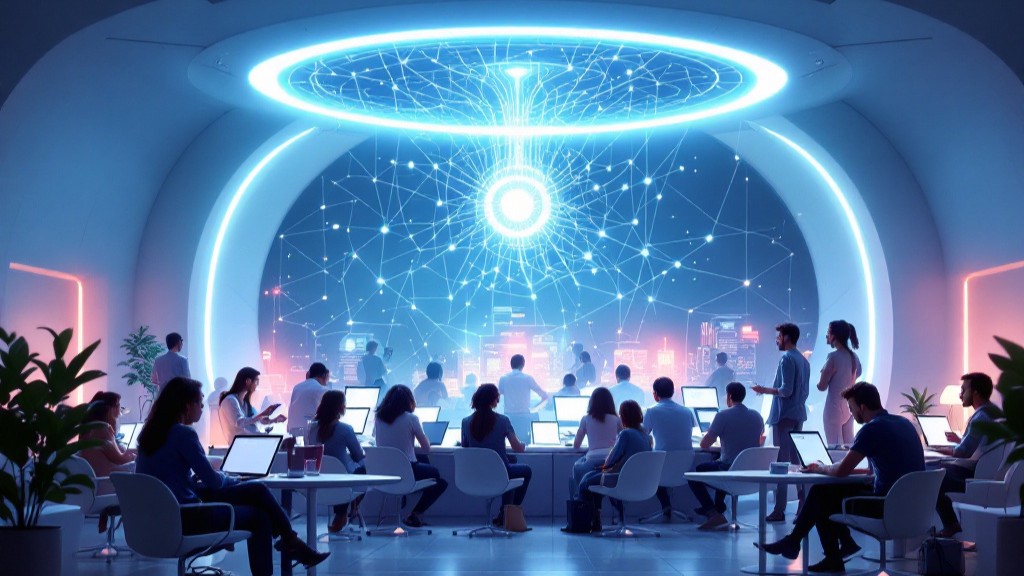Artificial Intelligence (AI) has become a game-changer in the business world. It’s not just a buzzword; it’s a technological revolution reshaping how businesses operate, making them smarter, faster, and more efficient. In this article, we’ll explore the various ways AI is transforming businesses and discuss the challenges that come with it.
1. Accelerating Processes and Efficiency
One of the most significant benefits of AI is its ability to automate repetitive tasks. By handling mundane tasks such as data entry, scheduling, and inventory tracking, AI allows businesses to save time and focus on more strategic activities. This not only speeds up operations but also reduces the chances of human error.
For instance, companies use AI-powered tools to:
- Automate customer support inquiries.
- Streamline supply chain management.
- Optimize scheduling and workforce allocation.
2. Enhancing Decision-Making
AI provides businesses with valuable insights by analyzing vast amounts of data. With AI-powered analytics, companies can make data-driven decisions that are accurate and timely. It’s like having a super-smart assistant who helps predict trends, identify risks, and find opportunities for growth.
Some examples include:
- Predicting market trends using predictive analytics.
- Identifying potential customer segments.
- Analyzing competitor strategies to stay ahead.
3. Revolutionizing Customer Interactions
AI-powered chatbots and virtual assistants have redefined how businesses interact with their customers. These tools are available 24/7, ensuring that customers always get the help they need. Chatbots can handle queries, resolve complaints, and even guide customers through purchases.
Benefits of AI in Customer Interaction:
- Continuous availability without needing human intervention.
- Faster response times, leading to improved customer satisfaction.
- Cost savings by reducing the need for large customer service teams.
4. Optimizing Supply Chain and Inventory Management
AI helps businesses become more efficient in managing their supply chain and inventory. By analyzing historical data and real-time information, AI can predict demand, optimize stock levels, and reduce waste.
Key Benefits:
- Timely restocking of products to avoid shortages.
- Identifying the best times to move inventory.
- Minimizing costs through efficient resource allocation.
5. Personalizing Customer Experiences
AI enables businesses to deliver personalized experiences to their customers. By understanding individual preferences and behaviors, AI can recommend products and services tailored to each customer. This increases customer loyalty and boosts sales.
Examples of Personalization:
- Personalized shopping recommendations on e-commerce platforms.
- Customized marketing emails based on user preferences.
- Dynamic pricing based on customer profiles.
6. Strengthening Cybersecurity
With the rise of cyber threats, businesses must stay vigilant. AI acts as a digital security guard, detecting and responding to potential threats in real-time. It can identify unusual activities, flag vulnerabilities, and prevent data breaches.
How AI Enhances Security:
- Continuous monitoring for suspicious behavior.
- Automating threat detection and response.
- Reducing downtime caused by cyberattacks.
7. Supporting Business Scalability
AI helps businesses scale operations without the need for proportional increases in resources. By automating processes and enhancing efficiency, companies can handle more work without hiring additional staff.
Examples:
- Automating customer onboarding processes.
- Managing large-scale data analysis tasks.
- Expanding into new markets with localized AI-driven insights.
8. Predictive Maintenance in Manufacturing
AI is transforming the manufacturing sector by enabling predictive maintenance. It can analyze data from machines to predict when they might fail, allowing businesses to perform maintenance before breakdowns occur. This ensures smooth operations and minimizes downtime.
Benefits of Predictive Maintenance:
- Reduced repair costs by addressing issues early.
- Prolonged lifespan of machinery.
- Enhanced overall productivity.
Challenges of Using AI in Business
While AI offers numerous benefits, it also presents challenges that businesses must address:
- Ethical Concerns: Ensuring AI systems make fair and unbiased decisions.
- Privacy Issues: Safeguarding sensitive customer and business data.
- Job Displacement: Balancing automation with employment opportunities.
- Implementation Costs: Managing the high initial investment in AI technologies.
Businesses must use AI responsibly and prioritize transparency, inclusivity, and collaboration to mitigate these challenges.
Artificial Intelligence is revolutionizing the way businesses operate. From accelerating processes and improving decision-making to enhancing customer experiences and ensuring cybersecurity, AI is driving growth and innovation. However, businesses must address the challenges associated with AI to ensure its benefits are realized responsibly. As AI continues to evolve, it will undoubtedly shape the future of business, creating new opportunities and redefining industries.

